7 5G Stocks With More Catalysts Than 5G
Investors betting on next-generation wireless networking technology need to find 5G stocks that have additional growth drivers.

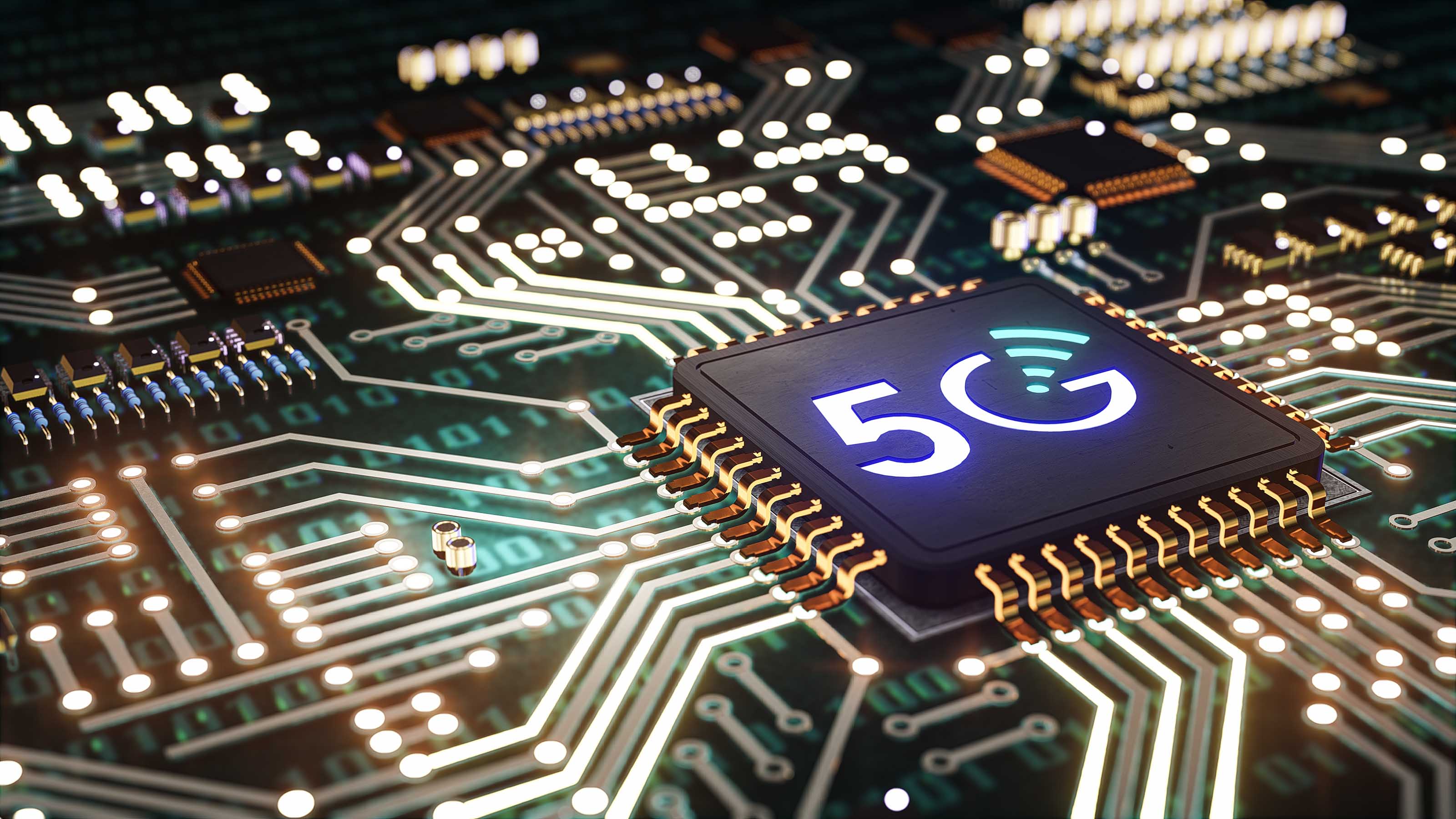
Profit and prosper with the best of Kiplinger's advice on investing, taxes, retirement, personal finance and much more. Delivered daily. Enter your email in the box and click Sign Me Up.
You are now subscribed
Your newsletter sign-up was successful
Want to add more newsletters?

Delivered daily
Kiplinger Today
Profit and prosper with the best of Kiplinger's advice on investing, taxes, retirement, personal finance and much more delivered daily. Smart money moves start here.

Sent five days a week
Kiplinger A Step Ahead
Get practical help to make better financial decisions in your everyday life, from spending to savings on top deals.

Delivered daily
Kiplinger Closing Bell
Get today's biggest financial and investing headlines delivered to your inbox every day the U.S. stock market is open.

Sent twice a week
Kiplinger Adviser Intel
Financial pros across the country share best practices and fresh tactics to preserve and grow your wealth.

Delivered weekly
Kiplinger Tax Tips
Trim your federal and state tax bills with practical tax-planning and tax-cutting strategies.

Sent twice a week
Kiplinger Retirement Tips
Your twice-a-week guide to planning and enjoying a financially secure and richly rewarding retirement

Sent bimonthly.
Kiplinger Adviser Angle
Insights for advisers, wealth managers and other financial professionals.

Sent twice a week
Kiplinger Investing Weekly
Your twice-a-week roundup of promising stocks, funds, companies and industries you should consider, ones you should avoid, and why.

Sent weekly for six weeks
Kiplinger Invest for Retirement
Your step-by-step six-part series on how to invest for retirement, from devising a successful strategy to exactly which investments to choose.
5G technology is set to become one of the most important technologies for the next several years. This isn't news – 5G stocks have been on investors' radars for quite some time.
In fact, 5G stocks as purely 5G plays are almost played out.
Still, the tremendous growth in the space is hard to ignore. For instance, 5G network infrastructure spending doubled in 2020 after a staggering 350% rise in 2019, according to a forecast from Gartner.
"Early 5G adopters are driving greater competition among (communication services providers)," says Kosei Takiishi, senior research director at Gartner. "In addition, governments and regulators are fostering mobile network development and betting that it will be a catalyst and multiplier for widespread economic growth across many industries."
But investors looking to play this powerful trend should perhaps consider 5G stocks that have other things going for them. Most catalysts likely will at least tie into 5G use as the network continues to roll out and new uses are discovered, but in some cases, strong parts of the bull argument are completely independent from 5G.
Here are seven 5G stocks that can continue to benefit from the growth in the technology, but also boast other factors that make them even more appealing.
Data is as of March 1. Dividend yields are calculated by annualizing the most recent payout and dividing by the share price.

Siemens
- Market value: $126.1 billion
- Dividend yield: 2.7%
- Catalyst: Automation
The German-based industrial conglomerate Siemens (SIEGY, $78.91) isn't an obvious play on 5G … at least when looking at 5G as purely a consumer-based technology. However, outside the world of faster downloads to a smartphone, 5G networks can be built on non-cellular networks.
For a giant factory, enabling a business-level 5G network can allow for more optimized automation, which can drive costs down and directly improve a company's bottom line.
"Enterprise applications allowing different machines to talk to each other in factories and automation. That's a real 5G use case that you're starting to see," says Reaves Asset Management analyst Brian Weeks. "That's not mobile internet, those are private networks that don't rely on a wireless spectrum."
Siemens is the leader in these business and industrial applications for 5G technology – not just in use, but in development. In November, for instance, the company released the first industrial 5G router. These routers will allow companies to integrate networks and better automate processes across giant plants.
BofA Securities analysts give Siemens a Buy rating and recently upgraded their estimates in part because of "strong growth and good visibility in China on both industrial automation and software businesses."
While SIEGY shares, which trade over-the-counter in the U.S., have been flat for years, a broader shift into industrial stocks, as well as Siemens' advances in industrial automation, could drive better performance going forward.
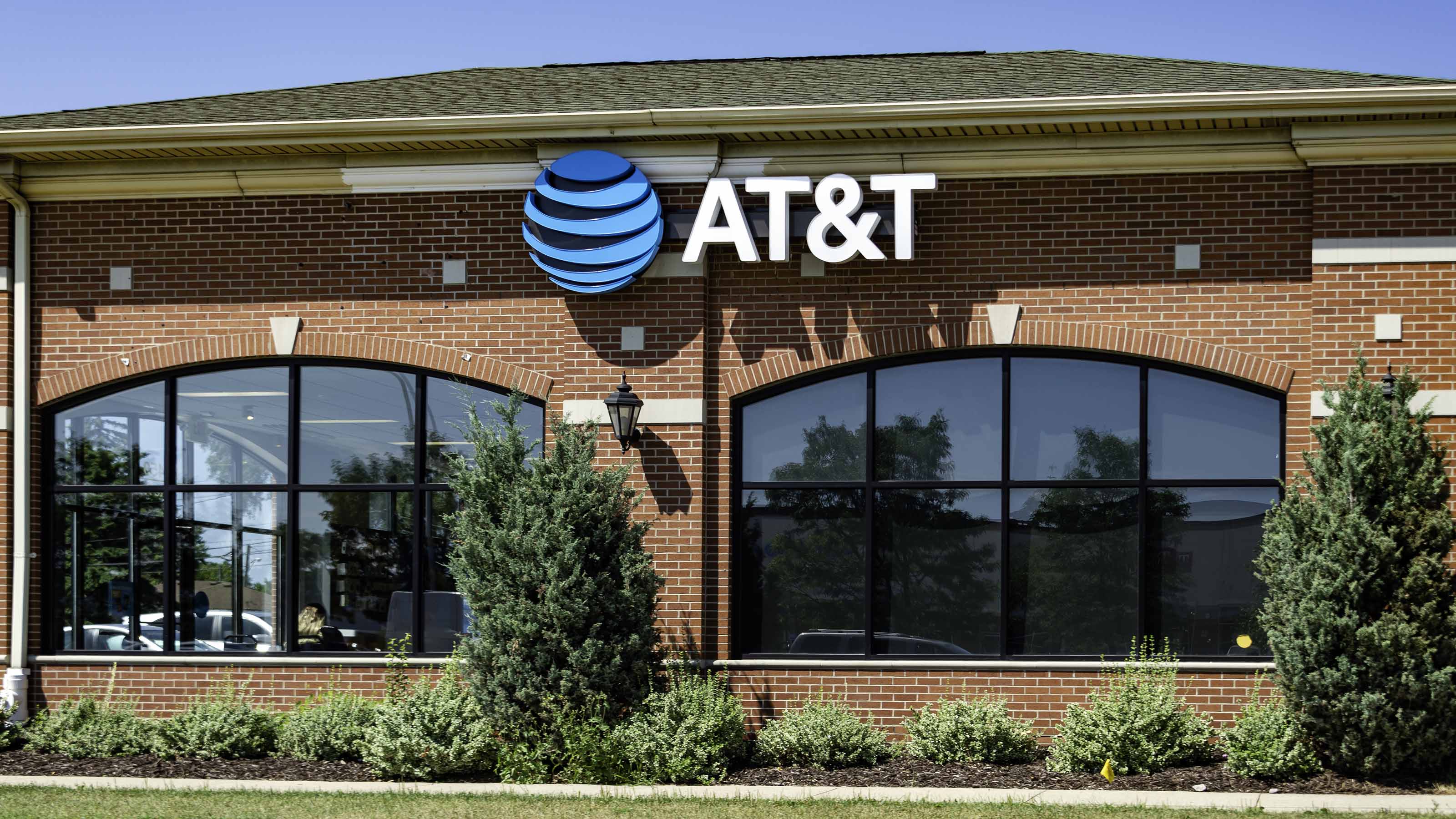
AT&T
- Market value: $200.8 billion
- Dividend yield: 7.4%
- Catalyst: Streaming
You can't have a list of 5G stocks without one of the major telecoms.
AT&T (T, $28.09) has spent several years and mountains of debt – $151 billion in long-term IOUs as of the end of 2020 – building itself into more than just a telecom play.
Its acquisitions of DirecTV and Time Warner gave it access to broadcasting as well as content creation. The former hasn't gone so well; AT&T has been trying to unload its satellite business for months, and finally agreed to a deal with private equity firm TPG Capital that will see the firm spin off DirecTV into a separate entity.
However, Time Warner – which includes Warner Bros., HBO, and numerous Turner properties including CNN, TBS and TNT – is a catalyst some investors might be sleeping on.
The company's HBO Max service saw signups surge by 40% amid the exclusive release of Wonder Woman 1984 starting on Christmas. That's a higher growth rate than Disney's (DIS) Disney+ enjoyed when it released the highly anticipated Hamilton on its service in July, though it was starting from a lower number.
It's a potential catalyst, albeit one with some risks. Some signups might not stay with the service, especially given its high price of $14.99. There also are worries about streaming interest waning as COVID-19 does.
"The nearly $5 billion investment in HBO Max over the next five years represents a substantial risk for AT&T if subscriber acquisition/retention metrics and/or financial returns for the service do not accord with management's projections," writes Argus Research analyst Joseph Bonner (Buy). But he adds, "We think management did a good job with content and pricing, and will undoubtedly market the new service through all of its many consumer touch points."
Despite this, and the potential wave of growth from 5G service, shares trade like … well, a telecom. T stock is priced at less than nine times future earnings estimates, largely out of concerns about the company's high debt level and what it means for the sustainability of the dividend. AT&T pays out $2.08 per share annually, translating into a high 7% yield at current prices.
The good news on that front? The TPG deal will give AT&T $7.8 billion to use against its debt, and Argus believes it will "have a positive effect on margins and EBITDA growth."

SBA Communications
- Market value: $29.2 billion
- Dividend yield: 0.9%
- Catalyst: 4G
What if 5G networks take more time than expected to roll out? Technological hiccups aren't exactly rare, and already, some early predictions for 5G network coverage have been proven overly optimistic.
In that case, companies still providing 4G coverage should fare well.
But no matter how fast or slow 5G rolls out, it's all good news for cell tower companies. Why? Because these firms act as the onramp for network coverage, no matter what generation. It's effectively an oligopoly that drives strong returns for the participants. Even better, the likelihood of future tower growth is slim; most 5G tech will use much of the same tower real estate as the existing 4G network.
"The biggest winner from 3G to 4G were the towers," says Reaves Asset Management's Weeks. "You didn't even have to pick the right one, you just had to throw a dart. It's one of the best business models ever. The existing inventory of towers in the U.S. is the inventory in the future. You can't really build new towers because of zoning and regulatory issues."
Enter SBA Communications (SBAC, $262.80).
SBA Communications is a telecommunications real estate investment trust (REIT) that leases infrastructure out to telecom providers. While REITs are a traditionally dividend-friendly sector given their mandate to share most of their profits with stock owners, SBAC doesn't offer much in the way of yield. Fortunately, that's largely a byproduct of its rapid share price growth over the past few years.
Given the company's likely growth trajectory on fixed costs and rising profits, however, the yield is likely to increase over time.
The company recently made a $973 million deal with PG&E (PCG) to place its antennas on the utility company's electric towers – a deal UBS's Batya Levi (Buy) says "will increase leverage." She adds, however, that "management expects to return to its targeted range by YE21 while still supporting a 25% dividend increase, other portfolio growth and/or continued share repurchases."
SBAC shares have cooled off significantly after years of ramping higher, and are now down roughly a quarter from their 52-week highs. That provides a much better entry point for this eventual 5G beneficiary.
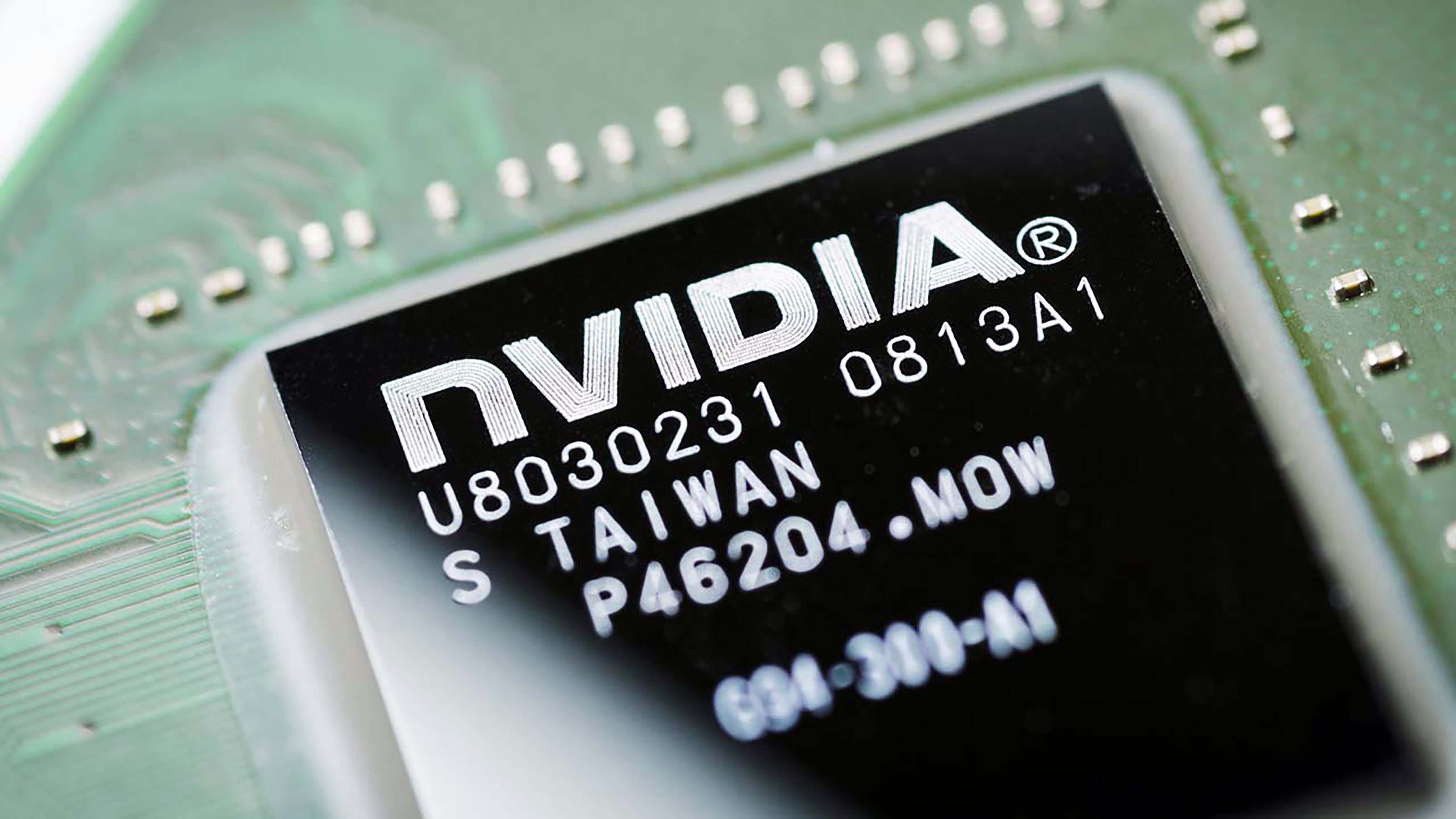
Nvidia
- Market value: $342.9 billion
- Dividend yield: 0.1%
- Catalyst: IoT, AI, machine learning, cryptocurrency
Nvidia's (NVDA, $553.67) graphics processors are a key ingredient for the various tools that will run on 5G networks. For instance, in early 2020, Nvidia reported that researchers were using the company's processors to develop artificial intelligence that could use machine learning more efficiently for growing out the 5G network.
"We have found that for some very hard telecom problems, there's no math formulation, but AI can learn the problem models automatically, enhancing our GPU-based parallel solutions," says Yan Huang, a PhD student and researcher on the project.
In short, Nvidia might just surprise as a 5G play, as it can help develop the technologies that run on it. It might even come up with the most ubiquitous uses that, 10 years for now, seem obvious in hindsight if they seem impossible today.
Regardless, Nvidia's current role in a number of other emerging technologies – take your pick, whether it's the Internet of Things, artificial intelligence, cryptocurrencies – places it front and center of a digital gold rush, much like the pick-and-shovel sellers in the gold rushes of yore obtained the safest and most consistent profits.
Consider the company's most recent report, which showed 2020 revenues up 53% year-over-year, and adjusted earnings up 73%. Those results were driven by products attached to a number of these trends, such as the company's A100 universal AI data center GPUs.
"Thousands of companies across the world are applying NVIDIA AI to create cloud-connected products with AI services that will transform the world's largest industries," CEO Jensen Huang said in a release.
From a hardware standpoint, Nvidia is a major player in a lot of areas. 5G is just a slice of a fast-growing pie.
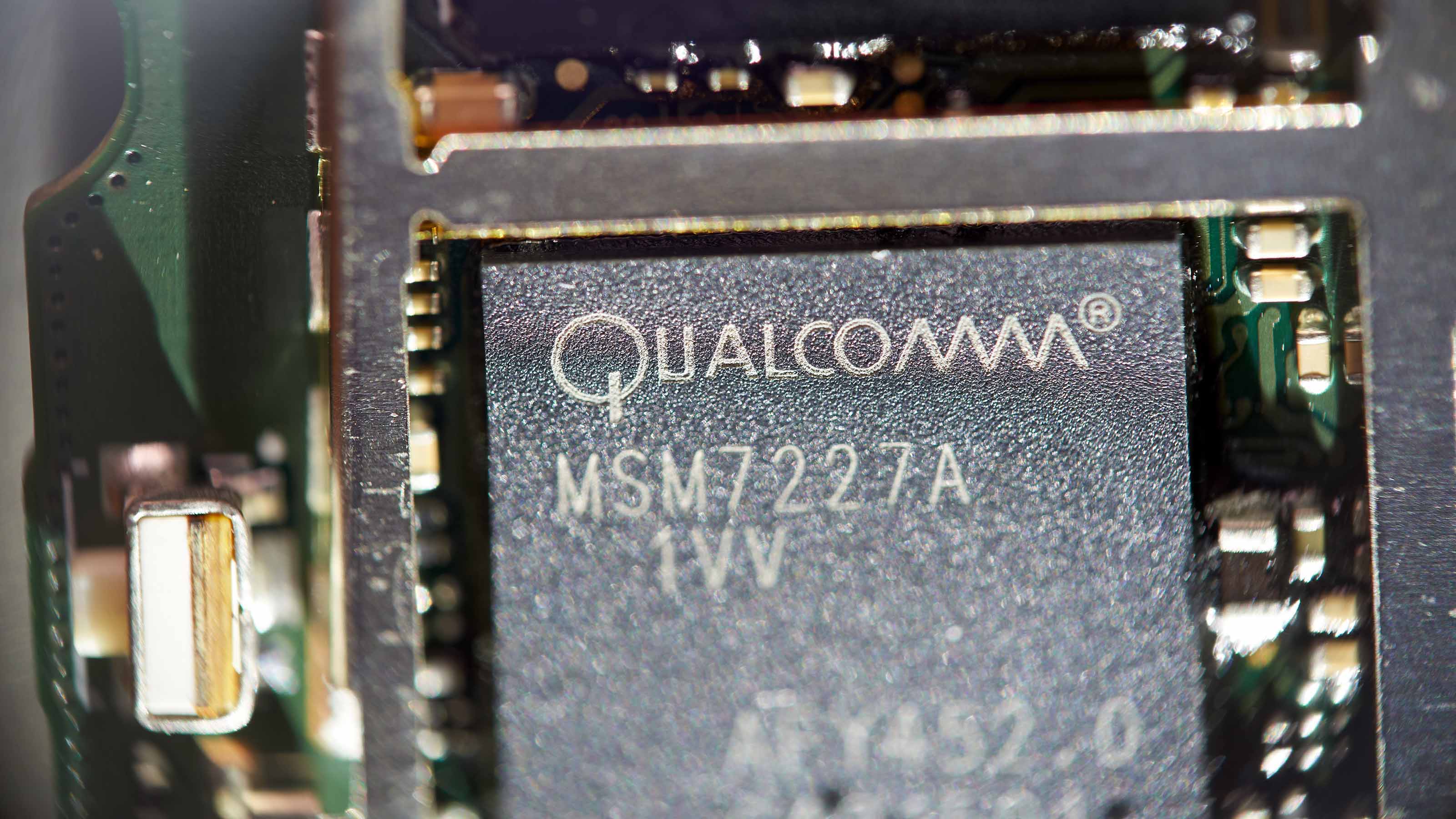
Qualcomm
- Market value: $158.8 billion
- Dividend yield: 1.9%
- Catalyst: Mobile infrastructure upgrades
Qualcomm (QCOM, $139.49), which is essentially a warehouse of patents on wireless communications, is another likely winner in the 5G race.
"Qualcomm is truly an incredible company (we own its shares, which we bought for the first time in 2015)," writes portfolio manager Vitaliy Katsenelson. "It owns essential patents on wireless technology. Your mobile phone runs on Qualcomm's intellectual property. Every time a mobile phone is sold on any part of this large planet, Qualcomm collects a few bucks. An incredible and very profitable business."
That's true whether a phone is 4G or 5G. Even if the upgrade cycle to 5G takes longer than expected, Qualcomm still benefits. That's the beauty of the company's royalty business model.
Remember: This isn't a one-and-done event. A study by Cambridge's Edward Oughton and the Universidad Politécnica de Madrid's Zoraida Frias estimates that 5G won't even reach 90% penetration until 2027. No matter how long the rollout takes, that leaves a long runway for companies benefitting from the trend, and a company selling products to suppliers of mobile devices on a royalty basis will likely continue to be a big winner, even if the market has already realized it.
QCOM has other avenues of growth, too. For instance, Argus Research's Jim Kelleher (Buy) says of Qualcomm's recent acquisition of Nuvia, "This under-the-radar acquisition, in our view, can accelerate Qualcomm's development of ARM-based CPUs for cloud and data center applications."
Still, 5G is an unquestionably significant driver for QCOM going forward.
"We believe that Qualcomm has barely begun to monetize its significant intellectual capital and multigenerational lead in 5G technology," Kelleher says. "As the 5G ramp moves from mainly infrastructure investment to the mass adoption of 5G handsets, we continue to look for a significant boost to revenue, margins, and EPS."
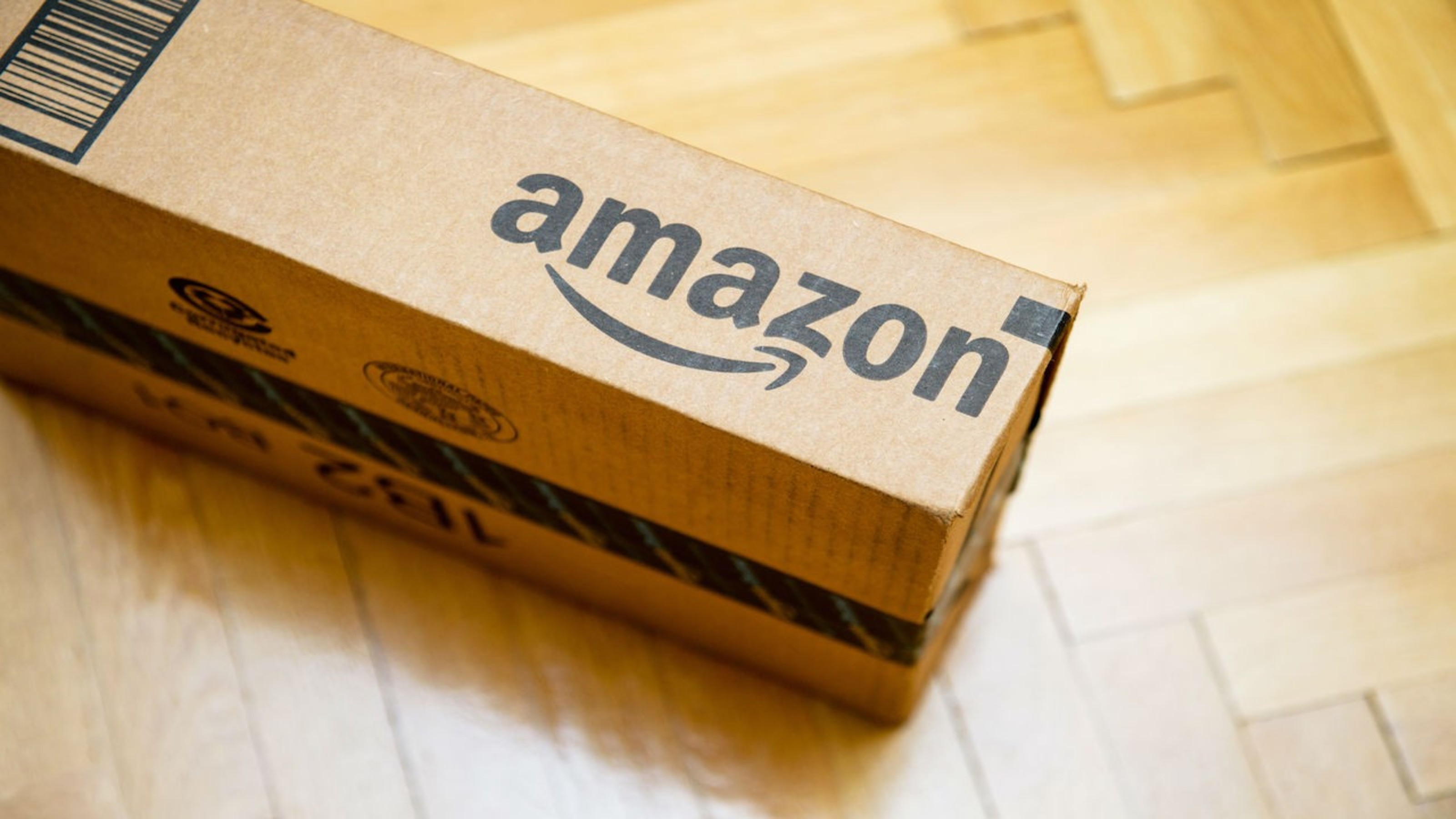
Amazon
- Market value: $1.6 trillion
- Dividend yield: N/A
- Catalyst: Autonomous fleets and warehouses
Amazon.com (AMZN, $3,146.14) founder Jeff Bezos announced in early February that he would step down as CEO later this year. His replacement? Andy Jassy, who currently leads the company's cloud business.
Many consumers still see Amazon as a primarily online retail operation. While that's a massive business, the profit driver is the company's Amazon Web Services. The development of the company's cloud storage business and ancillary services has generated far thicker profits – which the company admittedly sometimes wipes clean with massive expansion reinvestments – than in its internet retail operations.
Here, the industrial applications of local 5G networks come into play. Amazon could easily test out autonomous fleets running on a local 5G network, which might allow it to better automate its warehouses.
"AWS is uniquely positioned for enabling the grid of the future," the company notes. "With the scalability that can deliver dynamic load flows in near-real time, AWS can offer unprecedented insights to the grid operators of the future. With sophisticated AI/ML tools, AWS can carry the heavy lift of complex decision making in controlling these dynamic grids, where generation and load (electric vehicles) can itself be mobile too."
5G or not, Amazon will continue to benefit from the two-headed monster that is its e-commerce and AWS services.
"As the leader in two large and rapidly growing sectors (eCommerce & cloud), with an emerging high margin marketing business, Amazon remains well positioned in a recovery scenario given cloud services, marketing services and certain eCommerce categories/geographies are still in the early phases of development," say Stifel's analysts, which rate the stock at Buy.

Alphabet
- Market value: $1.4 trillion
- Dividend yield: N/A
- Catalyst: Software suite for 5G applications
Sure, Google parent Alphabet (GOOGL, $2,069.66) is already releasing 5G versions of its Pixel smartphone. But that hardware story has been known for some time.
At the end of 2020, Google expanded its Anthos 5G ecosystem, which allows its software applications to better utilize 5G networks. Anthos is simply the company's old Cloud Services division, which was rebranded in 2019.
This software side of the equation is where the real catalyst for higher profits for the company going forward – and likely a higher share price.
"When 5G is available to them, enterprise customers can benefit from higher speeds and lower latency, and Anthos makes it very easy for these customers to then deploy an application once and scale it across networks, including to the edge – which is why we call it 'the effortless edge,'" Amol Phadke, Google Cloud's managing director, said in a release announcing the Anthos expansion.
Right now, this side of the business is still reinventing itself for 5G applications. In February, Google reported $15.6 billion in Q4 earnings. This cloud services division lost more than $1.2 billion – more than its notoriously unprofitable "Other Bets" division, which lost $1.1 billion.
In time, however, this division could end up being a major growth and profit center for the company. "5G needs the cloud more than the cloud needs 5G," Reaves Asset Management's Brian Weeks quips.
Profit and prosper with the best of Kiplinger's advice on investing, taxes, retirement, personal finance and much more. Delivered daily. Enter your email in the box and click Sign Me Up.

A prolific financial writer, Andrew Packer has helmed newsletters on small-cap value investing, early-stage investments, special situations, short-selling, covered call writing, commodity investing, and insider trading, among others. He’s most proud of his 100% win rate on all trades in 2016.
-
 Betting on Super Bowl 2026? New IRS Tax Changes Could Cost You
Betting on Super Bowl 2026? New IRS Tax Changes Could Cost YouTaxable Income When Super Bowl LX hype fades, some fans may be surprised to learn that sports betting tax rules have shifted.
-
 How Much It Costs to Host a Super Bowl Party in 2026
How Much It Costs to Host a Super Bowl Party in 2026Hosting a Super Bowl party in 2026 could cost you. Here's a breakdown of food, drink and entertainment costs — plus ways to save.
-
 3 Reasons to Use a 5-Year CD As You Approach Retirement
3 Reasons to Use a 5-Year CD As You Approach RetirementA five-year CD can help you reach other milestones as you approach retirement.
-
 If You'd Put $1,000 Into AMD Stock 20 Years Ago, Here's What You'd Have Today
If You'd Put $1,000 Into AMD Stock 20 Years Ago, Here's What You'd Have TodayAdvanced Micro Devices stock is soaring thanks to AI, but as a buy-and-hold bet, it's been a market laggard.
-
 If You'd Put $1,000 Into UPS Stock 20 Years Ago, Here's What You'd Have Today
If You'd Put $1,000 Into UPS Stock 20 Years Ago, Here's What You'd Have TodayUnited Parcel Service stock has been a massive long-term laggard.
-
 If You'd Put $1,000 Into Lowe's Stock 20 Years Ago, Here's What You'd Have Today
If You'd Put $1,000 Into Lowe's Stock 20 Years Ago, Here's What You'd Have TodayLowe's stock has delivered disappointing returns recently, but it's been a great holding for truly patient investors.
-
 If You'd Put $1,000 Into 3M Stock 20 Years Ago, Here's What You'd Have Today
If You'd Put $1,000 Into 3M Stock 20 Years Ago, Here's What You'd Have TodayMMM stock has been a pit of despair for truly long-term shareholders.
-
 If You'd Put $1,000 Into Coca-Cola Stock 20 Years Ago, Here's What You'd Have Today
If You'd Put $1,000 Into Coca-Cola Stock 20 Years Ago, Here's What You'd Have TodayEven with its reliable dividend growth and generous stock buybacks, Coca-Cola has underperformed the broad market in the long term.
-
 If You Put $1,000 into Qualcomm Stock 20 Years Ago, Here's What You Would Have Today
If You Put $1,000 into Qualcomm Stock 20 Years Ago, Here's What You Would Have TodayQualcomm stock has been a big disappointment for truly long-term investors.
-
 If You'd Put $1,000 Into Home Depot Stock 20 Years Ago, Here's What You'd Have Today
If You'd Put $1,000 Into Home Depot Stock 20 Years Ago, Here's What You'd Have TodayHome Depot stock has been a buy-and-hold banger for truly long-term investors.
-
 If You'd Put $1,000 Into Bank of America Stock 20 Years Ago, Here's What You'd Have Today
If You'd Put $1,000 Into Bank of America Stock 20 Years Ago, Here's What You'd Have TodayBank of America stock has been a massive buy-and-hold bust.
